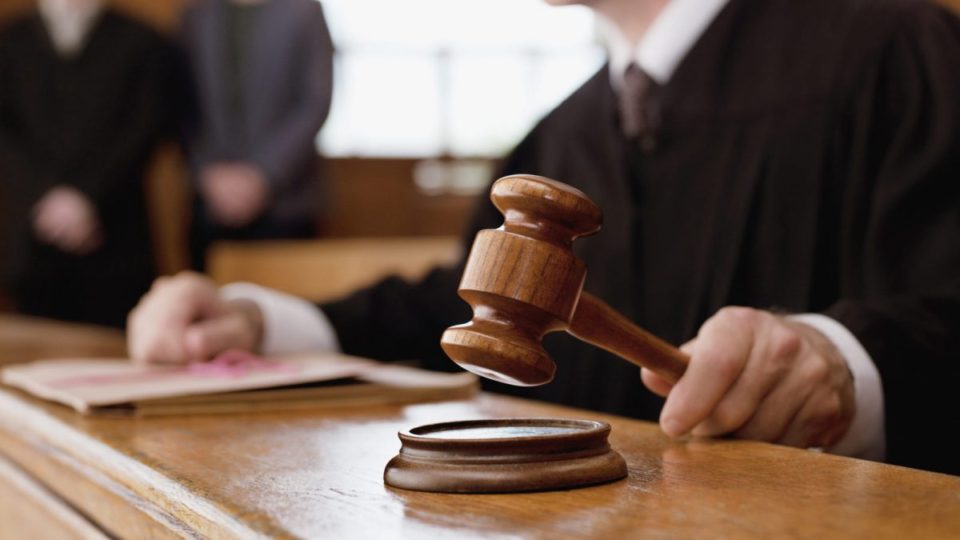- Legal Education and Access Portal
TRANSGENDERS: A TRIVIALISED COMMUNITY
For decades transgender people have been the victim of systematic stigmatisation. It is a callously neglected community. In the Colonial era gender-variant community of “eunuchs”, discovered by the British in the 1850s, was criminalised for its diverse gender to erase the whole community under the Criminal Tribes Act of 1871[1] and Dramatic Performance Act 1876[2]. The lack of access to fundamental rights and unemployment issues for transgender persons is a consequence of the mentioned acts in these times. In the Mughal Empire, transgenders worked as harem guards and were highly esteemed as entertainers in the royal courts. Traditionally, in that time, they were seen as blessed and often invited to weddings to bring good luck to the newlyweds.[3]
In contemporary times transgenders are increasingly pushed to live an undignified life. This is particularly evident in the Indian sub-continent. In India, the Transgender Persons (Protection of Rights) Act, 2019[4] (hereinafter TPA 2019) has failed to provide equal rights to the transgender community. Where punishment for raping a transgender is six months minimum and two years maximum with a fine [5] , and the punishment for raping a woman is ten years minimum which may extend to life imprisonment.[6]
This racial prejudice in the punishment for committing the same offence but against different genders is the result of poorly legislated rape laws in India. Section 375 of IPC defines rape as an offence that can only be committed by a man against a woman by specifically stating, “A man is said to commit rape if he: a. Penetrates his penis, to an extent, into the vagina, mouth, urethra or anus of a woman…”.[7]
Even the High Court of Uttarakhand at Nainital rejected a criminal writ petition named Ms X v. State of Uttarakhand and Others.[8] The petition was filed to direct the State government to treat the petitioner as a female in a rape case per the law. The court based its rejection on the landmark case NALSA v. Union of India[9] that person’s gender had to be based on the ‘psyche’ of the person and how they felt, rather than any biological factor. The court declared the petitioner as a male and rejected his medical certificate and his lodged First Information Report against the rape accused under Section 376.
This rape law has a limited scope even after the enactment of the Criminal Law (Amendment) Act, 2013[10] because it does not recognise same-gender sexual violence, marital rape and sexual violence against transgender or any other gender than a woman.
“The huge discrepancy in rape laws and the punishment for sexually assaulting a transgender person is just another way of showing that our lives don’t matter,” said Swati Bidhan Baruah, one of India’s first transgender judges.[11]
India’s Supreme Court responded to a petition filed by Adv. Reepak Kansal seeking equal punishment for sexual crimes. The court issued a notice to the Narendra Modi-led central government, ordering it to respond.[12] Still, the Indian government has not done anything about it yet. The difference is clear that the state considers them less than a human, that they are deprived of the rule of law, and they are unable to defeat these discriminatory laws.
Pakistan has enacted the Transgender Person (Protection of Rights) Act, 2018[13]. Still, due to the lack of its enforcement, it offers limited protection. Transgenders are exposed to sexual violence and discrimination. Because whenever a transgender tries to report a crime or file an FIR (First Information Report), the police usually do not take them seriously. Instead, they are frequently victimised, harassed, and exploited, sexually and mentally.[14]
Nayyab Ali, the executive director of Transgender Rights Consultants in Pakistan, says, “Police do not play its due role, and we have not seen any killers get arrested and executed.”[15]
This is especially the case with transgender women because their exploiters feel that sexual abuse of them is permissible.[16] This community is often the victim of hate crimes. TPA 2018 has failed to serve its purpose, which is to protect the fundamental rights of transgender and has also failed to meet the criteria of human dignity (Art. 14)[17] and equal treatment under the law (Art. 25)[18] due to a lack of implementation mechanism.
Who are Transgenders?
Not one single definition can define who transgenders are, but the most common and working definition is the one used by the Commissioner for Human Rights for the Council of Europe. It is related to gender identity that is different from the gender assigned to them at birth.[19] And the Yogyakarta Principles 2006[20] and Yogyakarta Principles plus 10, 2017[21], set out Indonesia’s obligations under international human rights and do not define transgenders but define gender identity.
It says,
“Gender identity is understood to refer to each person’s deeply felt internal and individual experience of gender, which may or may not correspond with the sex assigned at birth, including the personal sense of the body (which may involve, if freely chosen, modification of bodily appearance or function by medical, surgical or other means) and other expressions of gender, including dress, speech and mannerisms.”
Arguably Pakistan has enacted the TPA 2018 to satisfy its obligations under the International Covenant on Civil and Political Rights[22] (such as fundamental principles of universality, equality, and non-discrimination), which also emphasises gender identity and defines it is like a “person’s innermost and individual sense of self as male, female or a blend of both or neither; that can correspond or not to the sex assigned at birth,”.[23] There are other influences from which this development was possible such as the first order of the Supreme Court of Pakistan in the Constitutional Petition No.43 of 2009[24] on the rights of transgender people. A Series of orders passed by the Supreme Court directed the government to recognise the gender identity of transgender people and provide protection for their fundamental rights.[25] These legal reforms, along with the massive struggle and protests of transgenders for their rights, contributed to the enactment of TPA 2018.
Section 2(n) of the law, however, defines a “transgender person” as someone who is (i) “Intersex”, (ii) “eunuch”, or (iii) a “transgender man, transgender woman, Khawaja Sira or any person whose gender identity or gender expression differs from the social norms and cultural expectation based on the sex they were assigned at the time of birth.” [26]
This definition is an answer to the criticism made of the Supreme Court’s use of colonial language use such as “mental condition”, “disability”, and “disorder”. While Supreme Court misunderstood transgender identity as a disorder and a disability, transgender advocates have argued that the use of these terms often manifests the image of illness to be cured and can result in the pathologising of a transgender individual’s expression of gender identity as “not normal” or “deviant”.[27]
Developments and Issues
It is very unfortunate that the major organs of state, police and health care have failed miserably to assist in cases where transgenders were involved, especially in Khyber Pakhtunkhwa province. All the violence against transgender rights came to the forefront when activists raised their voices for a brutal attack on a transgender woman who was shot when she resisted abduction and rape. Her death was the responsibility of the hospital staff because they did not know whether to admit her to the male ward or female ward.[28]
The same is the case with our police department. Police are one of the major organs that have sworn to protect state citizens and their rights. Unfortunately, they turn a blind eye and contribute to the dignity violation of this community. Farzana Jan, president of the Shemale Association, told Human Rights Watch about the treatment of transgender people under police custody that the police typically took them to the police station, taunted them, forcibly removed their clothing, ordered them to dance, and poured cold water on them when they refused. When they complained, they were subjected to further abuse.[29]
Furthermore, in 2016 KPK provincial government allocated 200 million rupees for the welfare of the transgender community.[30] However, the activist told the Human Rights Watch that it was a mere political bribe as the government asked this community to stop blaming them for attacks on transgender people.
Above mentioned tragedies are not the only stories, but many have left transgender people traumatised and in fear of exposing their identity. Transgender adolescents face school dropout, constant harassment by peer groups and being cast out of their biological families, which not only make them homeless but also deprive them of their inheritance rights. It looks like they are visible on the streets but invisible to the state.[31]
But since 2012, Pakistan has taken a mature approach toward transgender legal recognition as NADRA (National Database and Registration Authority) started issuing CNIC (Computer National Identity Card) with third gender category to transgender people on the directions of the Supreme Court.[32] That was the first victory for transgender people, which made them legal citizens of Pakistan. In 2017, Pakistan got its name on the list of countries — including India, Germany, New Zealand, and Nepal — that allowed a third gender on their passport.[33]
The TPA 2018 recognises transgender fundamental rights such as anti-discrimination laws, inheritance rights, health care, education rights, the right to employment, property right, and the right to access public spaces. But it doesn’t prove to be effective enough to counter discrimination faced by transgenders. Conversely, these laws are appreciated by Frederick Rawski, International Commission of Jurist’s Asia Director. This is what he said about this piece of legislation,
“This a crucial improvement in the legal status of transgender people in Pakistan, making the Act one of the most far-reaching in the region, if not world over,”[34]
Furthermore, these laws highlighted enforcement mechanisms under the law, and state aggrieved transgender people may file complaints with the Federal Ombudsperson, the National Commission for the Status of Women (NCSW) and the National Commission for Human Rights (NCHR).
This is the first step towards victory in the battle that transgender people have been fighting for decades since the British Rule over the Indian subcontinent. However, these laws still have problems, lacunas and other issues which are not addressed in this act, as pointed out by the International Commission of Jurists. ICJ released a briefing paper, “Pakistan Transgender Advocacy Analysis brief 2020”,[35] which focused on interpreting the “Transgender Persons (Protection of Rights) Act 2018” in depth. This brief paper suggested a list of recommendations and omissions of laws legislated where needed.
The Way Forward
The only question there is how long transgender persons will suffer from being treated less than humans? How long our stereotypes will hurt their mental health? And how long we are going to keep stigmatising them with sex work and begging? Most transgenders are a victim of hate crimes. This biased behaviour of ours extends to the discriminatory legal provisions such as section 377 of the Pakistan Penal Code 1860, which criminalises “carnal intercourse against the order of nature”.[36] Pakistan policymakers need to work on this and other laws which are discriminatory in nature. So trans people can live up to the standard of the good life set by Article 25.1 of the Universal Declaration of Human Rights (1948).[37]
We tend to avoid transgenders not only because they have different gender identities but some of us fear them due to our stigmatised belief that we will get cursed by them. We need to accept them in all public places, in all educational institutes and all offices, whether it’s private or governmental. Transgenders do not need our sympathy but their rights.
[1] The Criminal Tribes Act, 1871, No. XXVII of 1871.
[2] The Dramatic Performances Act, 1876, No. XIX of 1876.
[3] Michele Langevine Leiby, ‘For Transgender Pakistanis, Newfound Rights’ Washington Post (10 February 2012) <https://www.washingtonpost.com/world/for-transgender-pakistanis-newfound-rights/2012/02/04/gIQAM0jG4Q_story.html> accessed 6 June 2022.
[4] Transgender Persons (Protection of Rights) Act, 2019, No. 40 of 2019 (IN); Hereinafter referred to as the “TPA 2019”.
[5] ‘ibid (n 4) ch VIII, s 18(d).
[6] The Indian Penal Code, 1860, No. XLV of 1860 (IN), s 376 (hereinafter IPC).
[7] ibid, s 375.
[8] Ms X v State of Uttarakhand [2019] Uttarakhand High Court W P Cr No. 28/2019.
[9] National Legal Service Authority (NALSA) v Union of India & others [2014] Supreme Court of India AIR 2014 SC 1863.
[10] The Criminal Law (Amendment) Act, 2013, No. 13 of 2013.
[11] Esha Mitra CNN, ‘India’s Rape Laws Don’t Cover Transgender People. They Say It’s Putting Them at Risk’ (2020) <https://www.cnn.com/2020/12/08/india/india-transgender-rape-laws-intl-hnk-dst/index.html> accessed 22 June 2022.
[12] ‘End Legal “Loophole” over Sexual Violence against Trans People, Indian Supreme Court Told’ The Independent (13 October 2020) <https://www.independent.co.uk/news/world/asia/india-supreme-court-trans-rights-sexual-violence-abuse-lgbt-b1013340.html> accessed 21 June 2022.
[13] Transgender Persons (Protection of Rights) Act, 2018, No. XIII of 2018 (PAK); Hereinafter referred to as the “TPA 2018”.
[14] Shah Meer Baloch, ‘Pakistan’s Transgender Women Protest against Rising Tide of Violence’ The Guardian (1 April 2022) <https://www.theguardian.com/global-development/2022/apr/01/pakistan-transgender-women-protest-against-rising-tide-of-violence> accessed 22 June 2022.
[15] ibid.
[16] Amal Atrakouti, ‘Violence against transgender people in Pakistan’ <https://www.civicus.org/index.php/fr/medias-ressources/133-blogs/4674-violence-against-transgender-people-in-pakistan> accessed 7 June 2022.
[17] Pakistan Const art 14.
[18] Pakistan Const art 25.
[19] ‘Pakistan: Transgender Persons (Protection of Rights) Act, 2018 A Briefing Paper’ (ICJ 2020).
[20] ‘The Yogyakarta Principles Address a Broad Range of International Human Rights Standards and Their Application to SOGI Issues. On 10 Nov. 2017 a Panel of Experts Published Additional Principles Expanding on the Original Document Reflecting Developments in International Human Rights Law and Practice since the 2006 Principles, The Yogyakarta Principles plus 10. The New Document Also Contains 111 “Additional State Obligations”, Related to Areas Such as Torture, Asylum, Privacy, Health and the Protection of Human Rights Defenders. The Full Text of the Yogyakarta Principles and the Yogyakarta Principles plus 10 Are Available at: www.Yogyakartaprinciples.Org.
[21] ibid.
[22] International Covenant on Civil and Political Rights (adopted 16 December 1966, entered into force 23 March 1976) 999 UNTS 171 (ICCPR).
[23] TPA 2018 (n 15) s 2(f).
[24] Dr Muhammad Aslam Khaki & another v SSP (Operation), Rawalpindi & others [2012] Supreme Court of Pakistan PLD 2013 SC 188, C.P. 43/2009.
[25] Asad Ullah Khan, ‘Gendered Justice: Constitutions, Trans-Genders and Equality’ (2016) 3 LUMS Law Journal 126.
[26] TPA 2018 (n 15) s 2(n).
[27] Gizem Guney, David Davies and Po-Han Lee, Towards Gender Equality in Law: An Analysis of State Failures from a Global Perspective (2022) 90, 91.
[28] ‘Pakistan: Attacks on Transgender Women Surge’ (2016) <https://www.hrw.org/news/2016/08/22/pakistan-attacks-transgender-women-surge> accessed 10 June 2022.
[29] ibid.
[30] Muhammad Ali Awan, ‘Transgender People and Human Rights Issues in Pakistan’ (Goethe University Frankfurt 2019) 262.
[31] Anuvinda P and Tiruchi Siva, ‘No Country for Transgenders?’ (2016) 51 Economic and Political Weekly 7.
[32] Khaki v. Rawalpindi (n 26).
[33] Lindsay Maizland, ‘Pakistan Just Issued Its First Passport with a Transgender Category’ Vox (23 June 2017) <https://www.vox.com/world/2017/6/23/15861620/pakistan-transgender-passport-human-rights> accessed 10 June 2022.
[34] ‘The ICJ Releases Briefing Paper on Pakistan’s Transgender Persons (Protection of Rights) Act, 2018’ (International Commission of Jurists, 31 March 2020) <https://www.icj.org/the-icj-releases-briefing-paper-on-pakistans-transgender-persons-protection-of-rights-act-2018/> accessed 11 June 2022.
[35] ‘Pakistan: Transgender Persons (Protection of Rights) Act, 2018 A Briefing Paper’ (n 21).
[36] The Pakistan Penal Code, 1860, No. XLV of 1860 (PAK), s 377.
[37] Universal Declaration of Human Rights (adopted 10 December 1948) UNGA Res 217 A(III) (UDHR) art 25.1




